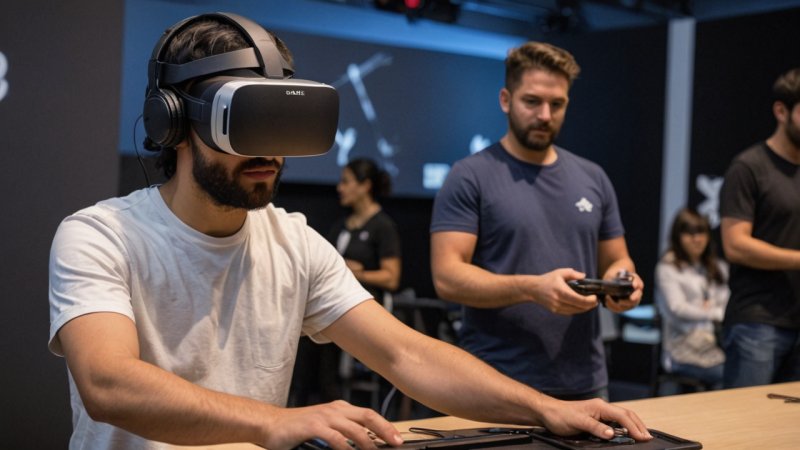Virtual reality (VR) gaming is a phenomenon that has taken the gaming world by storm, offering immersive experiences that redefine how we play. As this technology continues to advance and become more accessible, its impact on gaming culture cannot be underestimated. VR is not just changing the way games are played; it's transforming the very essence of gaming itself.
At the heart of VR's impact is its ability to create a sense of presence. When players don a VR headset, they are transported into a digital world where they can explore, interact, and engage like never before. This level of immersion fosters a deeper connection to the game, allowing players to experience narratives and environments in ways that traditional gaming simply cannot achieve. The emotional engagement that VR provides has the potential to reshape how stories are told in games, creating more profound connections with characters and plotlines.
Moreover, VR gaming is pushing the boundaries of social interaction within the gaming community. Multiplayer VR experiences allow players to connect in shared virtual spaces, where they can communicate, collaborate, and compete in real-time. This social aspect has led to the rise of virtual communities, where players come together to share experiences, create content, and build relationships. Games like Rec Room and VRChat exemplify this new wave of social gaming, where players can forge friendships and engage with others across the globe.
The competitive aspect of gaming is also evolving thanks to VR technology. Esports is expanding to include VR competitions, where players showcase their skills in immersive environments. This shift not only attracts dedicated gamers but also opens up opportunities for new genres and gameplay styles. As VR esports gain popularity, they are drawing attention to the potential of VR as a legitimate competitive platform, further integrating it into the fabric of gaming culture.
VR technology is also encouraging inclusivity within the gaming community. As the industry works to make VR more accessible, it becomes a platform for diverse voices and experiences. Developers are creating games that cater to a wider audience, including those who may have previously felt excluded from traditional gaming experiences. This inclusivity enriches the gaming culture, fostering creativity and diversity in game design and storytelling.
However, the rise of VR gaming does not come without its challenges. Issues such as motion sickness and the need for dedicated physical space can complicate the VR experience. Developers are continuously working on solutions to these problems, incorporating features that reduce discomfort and improve user experience. As technology progresses, we can expect these barriers to diminish, making VR gaming more appealing to a broader audience.
In conclusion, virtual reality is having a profound impact on gaming culture, shaping how we play, connect, and engage with one another. Its immersive experiences, social interactions, and competitive opportunities are redefining the landscape of gaming, creating a vibrant community that embraces innovation and inclusivity. As VR technology continues to evolve, it will undoubtedly play a pivotal role in the future of gaming, inviting players to explore new worlds and narratives in ways that were once unimaginable. The journey ahead promises to be exhilarating, as gaming culture embraces the limitless possibilities of virtual reality.
Exploring the Impact of VR on Gaming Culture
Discover how virtual reality (VR) is transforming gaming culture through immersive experiences, social interactions, and competitive opportunities.






